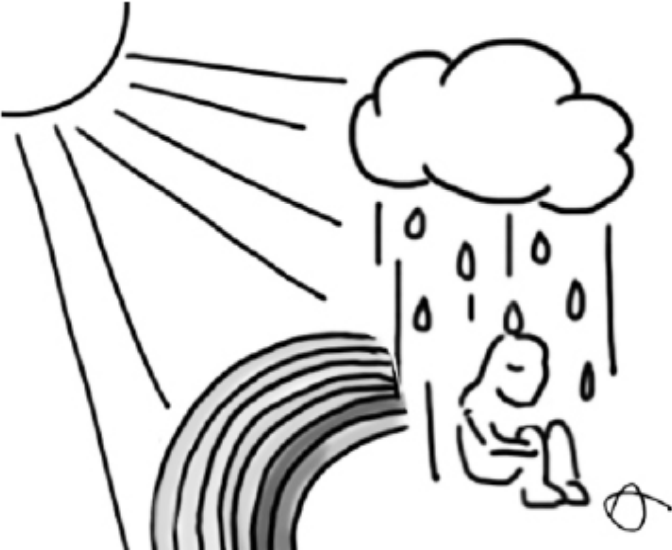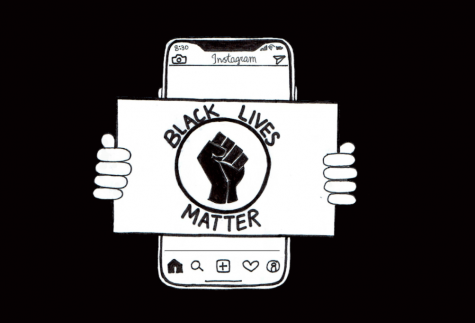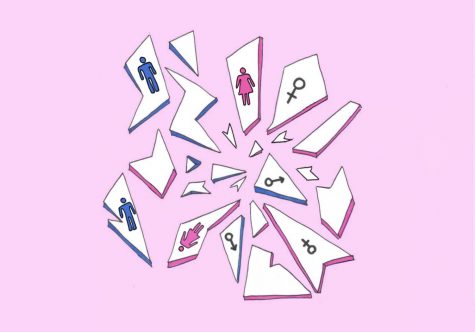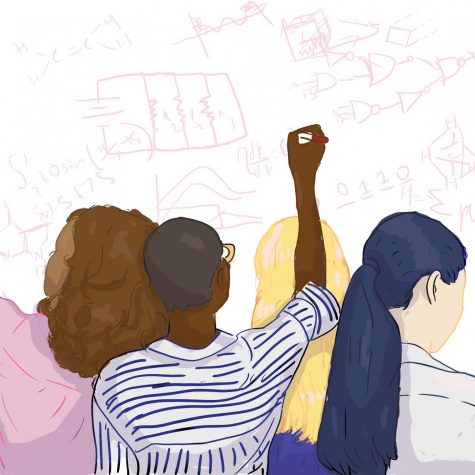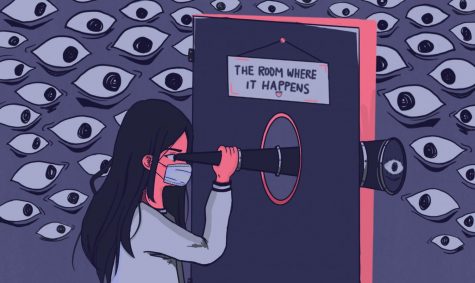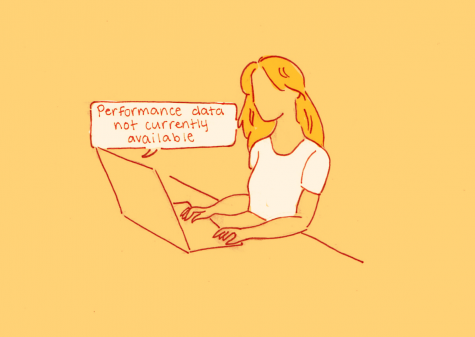It’s Okay Not To Be Happy
Please feel free to peel your smile from your mouth and rub the sleep back into your eyes for a little while. You don’t need to cry into your pillow every night or listen to “Marvin’s Room” alone in your room while your roommate is at late practice. And you don’t have to answer my “how are you?” with a “good, thanks, and you?” if that’s not how you really are.
It’s okay not to be happy here at Groton. Although there is an expectation for us to look put together and perfect at every hour of our lives, it is not a requirement. It might be more convenient to bottle up our emotions and hide them in the secret cabinets of our minds, but when this cabinet is discovered, wouldn’t you rather it be empty than filled to the brim with hidden pain?
This happens rarely, but sometimes I wake up worried on a cold winter’s morning after not getting enough sleep and can barely lift my eyelids off of my eyeballs. All I want to do is stay in bed and wallow in my half-awake state. I don’t want to talk to anyone, I don’t want to sit alert through my classes, and I don’t feel like engaging in normal human activities.
Yet I force myself to roll out of bed and resist the temptation to show up to chapel in my pajamas. I blearily slap my contacts onto my eyes, slowly brush my teeth, put on mildly presentable, probably dirty clothes, and shake out my hair. Perhaps my logic behind this is that if I look okay on the outside, I’ll be okay on the inside.
But all the little troubles in my mind splash against the sides, and it’s almost too painful to bear. When someone asks me how I am, I automatically say, “I’m good, and how are you?” I smile at everyone whom I walk past, and I happily greet anyone who greets me. But inside, I’m still overwhelmed by the waves of worries.
I used to try to dam up everything I felt inside. I used to suppress all my emotions and pretend I was feeling great. Everyone else looked perfectly happy, so I was under the impression that I should too.
But one day, I decided to answer a friend’s “how are you doing” with an “I’m really not doing so well.” To my surprise, she said, “Hey, me neither” and sat down next to me and told me that she often has a very strong desire to get up on her chair in the middle of class and scream. And then she asked me if I wanted to talk about anything. And yet again, to my surprise, I did.
I realized then that even the most orderly, composed looking people might actually not be as orderly and composed as they look, and that if I let my guard down a little, people might be willing to let down theirs too. Maybe we’re putting on airs and shows and masks to play our respective roles in what we believe to be an at least superficially functional social institution. But how can this be if inside we’re all actually not happy?
If this is of any comfort to you, I for one am definitely not always happy at Groton. In fact, I don’t think anyone at Groton loves it unconditionally. Sometimes I am unbelievably, ridiculously happy here, but occasionally all I want to do is leave campus and never come back. I’ve gotten a lot better at talking to people; however, I’m still reluctant to talk about myself, but just because I don’t doesn’t mean I’m not struggling here with you.
According to the Child Mind Institute’s Children’s Mental Health Report, in 2015 17.1 million out of the 74.5 million children under eighteen have or have had a diagnosable psychiatric disorder, which is about 23.9 percent of American youths. A study released in January 2010 led by Jean Twenge, who analyzed the responses of over 77,000 students who took the Minnesota Multiphasic Personality Inventory from 1937 through 2007, found that five times as many high school and college students are dealing with anxiety and other mental health issues as those during the Great Depression. I am unsure of whether we have become so accustomed to lying to ourselves or whether standards have become too unattainable.
At the same time, it seems that society is telling us to suppress all of our emotions. We have to put on a façade to avoid seeming soft or weak as if those make us less worthwhile as human beings. And so when we internalize all of our pain because we have been conditioned to think that pain is wrong. I think, however, that it is not the pain itself that is wrong but rather whatever it is that forces us to pretend that everything is okay, because everything might actually not be okay. And that’s okay.
We’re so busy here that sometimes we forget to take care of ourselves, physically and mentally. We are always being chased by major commitments, deadlines, buses to sports games, college, college counselors, embarrassing middle school photos, Ollie the dog and all the other relentless dynamics of Groton. But honestly, look around yourself. I can’t speak on their behalves, but I am always here for anyone who wants to talk. It’s okay not to be happy, and it’s okay to want to be.

Hanna Kim makes sure The Circle Voice is looking spiffy. She looks after the design elements of the publication, and she is old friends with the Adobe...


